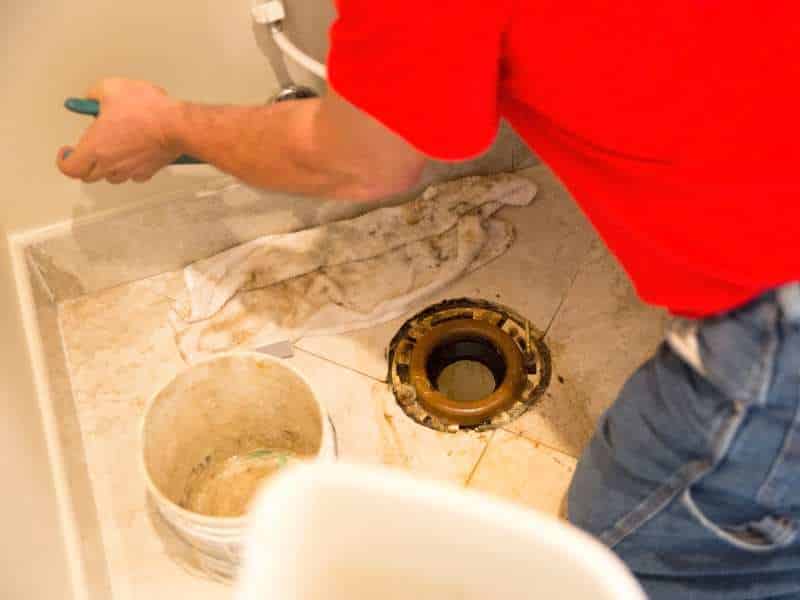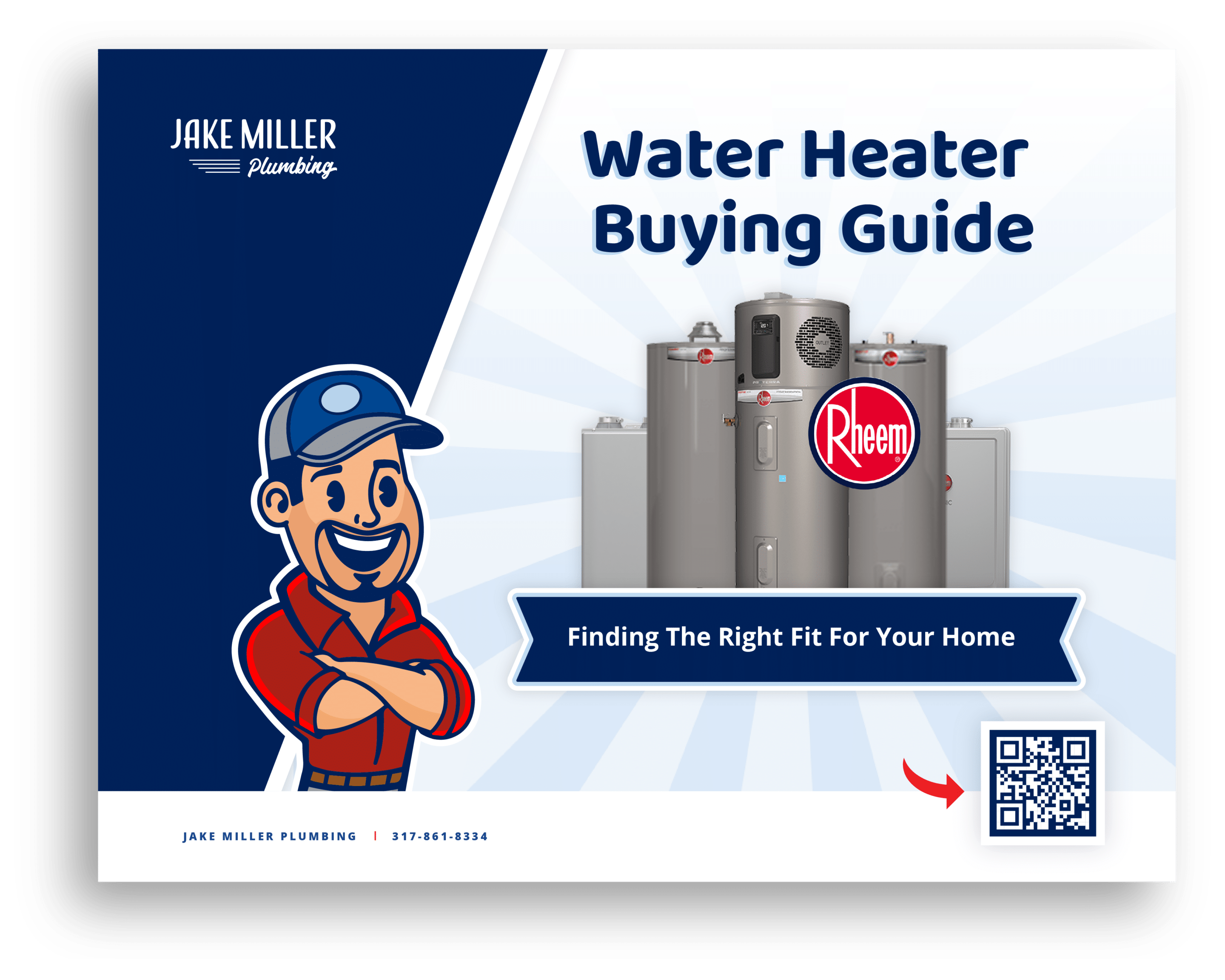A sump pump is an often overlooked but crucial component of any home with a basement or crawlspace. It works tirelessly to redirect water away from your home, ensuring that flooding and water damage are kept at bay. But like any other appliance in your house, sump pumps have a lifespan, and there will come a time when you’ll need to consider sump pump replacement.
In this comprehensive guide, we’ll delve into the signs that it’s time for a new sump pump, types of sump pumps available, and what to look for when choosing a replacement.
Signs You Need a Sump Pump Replacement
Knowing when to replace your sump pump can be a bit of a mystery for most homeowners. Many tend to forget about the sump pump until it’s too late, often realizing its importance only when it fails, and water damage occurs. Understanding the signs that indicate a sump pump replacement is needed can save you from the headaches of an unexpected flood or water damage.
Age of the Pump
Sump pumps have a lifespan of approximately 4-5 years. If your pump is reaching the end of this cycle, it’s wise to consider a replacement, even if you haven’t experienced any noticeable problems yet. Older pumps are more likely to fail, and given the crucial role a sump pump plays in preventing water damage, it’s not an appliance you want to gamble with.
Frequent Cycling
If your sump pump is turning on and off more frequently than usual, or if it runs continuously, this could be a sign of a malfunctioning float switch or a problem with the pump’s electrical components. Both scenarios are indicators that the pump isn’t operating efficiently and could fail when you need it most. Frequent cycling also wears out the pump motor faster, necessitating a replacement sooner rather than later.
Strange Noises
All appliances make some noise, but you should be concerned if your sump pump starts making strange or loud grinding or gurgling sounds. These noises can indicate issues with the motor or the impeller, the blade that pushes water out of the sump pit. If you hear unusual sounds coming from your pump, it’s a good idea to have it inspected and potentially replaced.
Visible Rust or Corrosion
Over time, constant exposure to water can cause your sump pump to rust or corrode. While some surface rust is normal, significant rusting or corrosion could cause the pump to malfunction, or worse, seize up entirely. A corroded pump may also leak, exacerbating your water problems and leading to potential damage in your basement.
Failure to Activate
The most obvious sign that you need a sump pump replacement is a failure to activate when needed. If your basement floods during a rainstorm and the sump pump doesn’t turn on, it’s likely beyond repair. This kind of failure can lead to significant water damage, and the cost of repairs will likely far exceed the cost of a new sump pump.
Being aware of these signs and taking proactive steps to address them can save you a lot of money and stress in the long run. When you notice any of these warning signs, it’s essential to consult professionals for an accurate diagnosis and appropriate solutions, which may well include a sump pump replacement.
Types of Sump Pumps
When it’s time for a sump pump replacement, understanding the different types available can help you make an informed decision that’s tailored to your home’s specific needs. Here’s a breakdown of the most common types of sump pumps:
Pedestal Pump
A pedestal pump has its motor mounted above the sump pit, making it easier to service and maintain. These types of pumps are generally less expensive upfront. However, they are noticeably louder during operation and tend to be less powerful, which means they may not be suitable for areas that are prone to heavy flooding or have large volumes of water to move. Also, because the motor is not submerged, it doesn’t cool as efficiently as submersible models, making it prone to overheating if run continuously for extended periods.
Submersible Pump
Submersible pumps are placed entirely inside the sump pit, making them quieter and more visually unobtrusive. They are often more efficient and effective at pumping water, making them a preferred choice for larger homes or areas susceptible to frequent or severe flooding. Although submersible pumps are more expensive initially, their efficiency and durability often make them more cost-effective in the long run. Their design allows the motor to be cooled by the water, reducing the risk of overheating even during continuous use.
Battery-Backup Pump
No matter how efficient a sump pump is, it won’t be of much use during a power outage—often when you need it the most, like during severe storms. That’s where battery-backup sump pumps come in handy. These pumps have a battery that kicks in automatically if the power goes out, ensuring uninterrupted operation. Battery-backup pumps can be either pedestal or submersible types but come with the added peace of mind that they’ll continue working even if the electricity doesn’t. While adding a battery backup to your sump pump will increase the initial cost, the extra layer of security it provides can be invaluable, especially in areas where power outages are common.
Each type of sump pump has its pros and cons, and the right choice for you will depend on various factors like your home’s size, its susceptibility to flooding, your budget, and your noise tolerance. When in doubt, consult with a professional to help you make the best decision for your situation.
Choosing the Right Replacement Sump Pump
Selecting a replacement sump pump involves more than just walking into a store and picking one off the shelf. It’s crucial to consider a range of factors to ensure you’re investing in a unit that will adequately meet your needs for years to come. Here are some key considerations:
Consider Your Needs
The first step in choosing the right sump pump is understanding your specific needs. Assess the size of the area that needs to be kept dry, whether it’s a basement, crawl space, or another part of your home. In addition, examine the type of soil that surrounds your property. For example, clayey soil tends to drain poorly, which might necessitate a more powerful pump. Different pumps are designed for different tasks, so knowing your needs upfront will help you make an informed decision.
Check the Horsepower
Horsepower (HP) is a vital metric when it comes to the efficiency and effectiveness of a sump pump. Most residential properties are well-served by pumps with either 1/3 or 1/2 horsepower. However, if your home is larger, or if you’ve previously experienced severe flooding, you may require a pump with higher horsepower. Keep in mind that choosing a pump with too much horsepower can result in unnecessary energy consumption, while one with too little horsepower may not handle your water removal needs effectively.
Look for Quality Brands
The market is flooded with a variety of sump pumps from different manufacturers, but not all are created equal. When looking for a replacement, stick to reputable brands known for quality and reliability. These units may cost a bit more, but they generally come with robust warranties and customer support, making them a wiser investment in the long run. Check reviews and ratings online or seek recommendations from trusted sources to ensure you’re getting a top-quality product.
Seek Professional Advice
While the internet offers a wealth of information, there’s no substitute for expert advice tailored to your unique circumstances. Consult a qualified plumber or contractor experienced in sump pump installations for personalized guidance. These professionals can assess your situation, including your home’s layout and your area’s water table, and provide specific recommendations that take all variables into account. Plus, their installation expertise can help ensure that your new sump pump operates efficiently and effectively, providing you with peace of mind.
Wrapping Up
Sump pumps are critical in safeguarding your property from the risks of water damage. Taking a proactive stance on replacing an aging or malfunctioning sump pump can prevent future headaches and financial burdens. Be vigilant for signs of a pump in decline, educate yourself on the types of pumps available, and make a well-informed choice when the time comes to replace your unit.
How Jake Miller Plumbing Can Help
Should you have concerns that your sump pump might be due for a replacement, professional guidance is highly recommended. Jake Miller Plumbing specializes in sump pump replacements, offering expertise to keep your home dry and shielded from water-related issues. Reach out to us today to arrange a thorough evaluation of your current sump pump’s condition.

